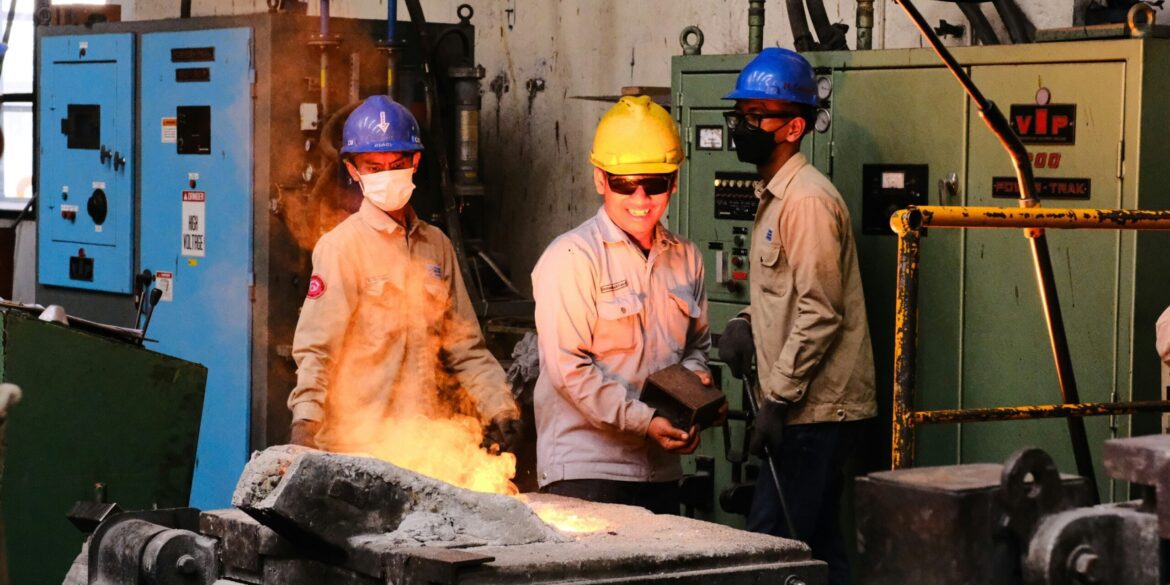On June 20, 2025, Nippon Steel formally completed its high-profile acquisition of U.S. Steel, solidifying a transformative deal that blends foreign investment with robust domestic protections. The transaction, valued at $14.9 billion, was greenlit following months of negotiations and the issuance of an executive order in March by President Donald Trump that imposed strict national security conditions on the deal.
As part of the agreement, Nippon Steel committed to investing up to $14 billion in U.S. production facilities over the next three years. The goal is to modernize steel manufacturing infrastructure, enhance domestic supply chain reliability, and expand capacity in key markets. The deal also includes a rare “golden share” provision, allowing the U.S. government veto power over critical decisions involving exports, production levels, facility closures, and offshoring of jobs.
Strategic Oversight Through the Golden Share
The introduction of the golden share is a central feature of this acquisition. It gives the U.S. government significant leverage over the company’s strategic decisions, ensuring that national interests remain protected even under foreign ownership. The arrangement grants the president authority to appoint an independent board member and approve or block actions such as facility shutdowns or export realignments.
According to administration officials, this model balances economic openness with sovereignty in strategic sectors, offering a framework that could guide future foreign investments in sensitive industries like defense, semiconductors, and critical minerals.
Commerce Secretary Howard Lutnick described the mechanism as “a 21st-century tool for ensuring economic security,” emphasizing that its use does not signal a retreat from global markets, but rather a smarter, more controlled approach to globalization.
Economic Impact and Industrial Significance
The immediate response to the deal was upbeat in financial markets. U.S. Steel shares rose 5.1%, nearing the transaction’s $55 per-share valuation. Investors welcomed the clarity on regulatory approval and the significant capital infusion promised by Nippon Steel.
The Japanese steelmaker, already one of the world’s largest producers, plans to deploy advanced manufacturing techniques and invest in sustainability upgrades at existing American facilities. These include modernizing blast furnaces, enhancing electric arc furnace capabilities, and potentially developing new green steel production methods in alignment with environmental standards.
With this acquisition, Nippon Steel aims to create a globally competitive enterprise capable of producing over 85 million tons of steel annually—second only to China’s state-owned producers.
Labor and Community Perspectives
While the financial community has largely welcomed the deal, labor unions have expressed mixed reactions. The United Steelworkers (USW), which represents thousands of U.S. Steel employees, voiced concern about the level of transparency during the acquisition process and has called for enforceable guarantees protecting jobs, wages, and benefits.
Although the agreement preserves current labor contracts through at least 2026, union leaders are pressing for more concrete assurances on long-term employment and community investments. “Our workers built this company,” said a USW spokesperson. “We want to make sure they have a seat at the table as this new chapter unfolds.”
Community advocates in industrial towns such as Pittsburgh and Gary, Indiana, are also watching closely, hoping the pledged investments translate into job creation and local economic revival.
A New Precedent for Foreign Direct Investment
The Nippon Steel–U.S. Steel deal underscores a broader trend in foreign direct investment (FDI) policy: increasing insistence on domestic reinvestment and strategic oversight. Similar approaches have emerged in the semiconductor industry and in defense manufacturing, where global capital is welcomed only with assurances of local benefit and national control.
Analysts say the golden share model could become a prototype for future deals involving infrastructure, energy, and other vital sectors. At the same time, they warn of potential risks: adding layers of government oversight may deter some foreign investors wary of political entanglements or regulatory uncertainty.
Still, the deal illustrates how nations are recalibrating the balance between economic globalization and national interest, particularly in an era marked by supply chain vulnerabilities and great-power competition.
What Comes Next
Key developments in the wake of the acquisition will include:
- Execution of the $14 billion investment plan, particularly in plant modernization and expansion
- Implementation of golden share provisions, especially how the government exercises its oversight
- Negotiations with labor unions ahead of the 2026 contract expiration
- Regulatory responses abroad, as other countries consider adopting similar FDI frameworks
The coming months will be critical in determining whether this deal fulfills its promise of revitalizing American steelmaking while preserving national interests in an interconnected global economy.

